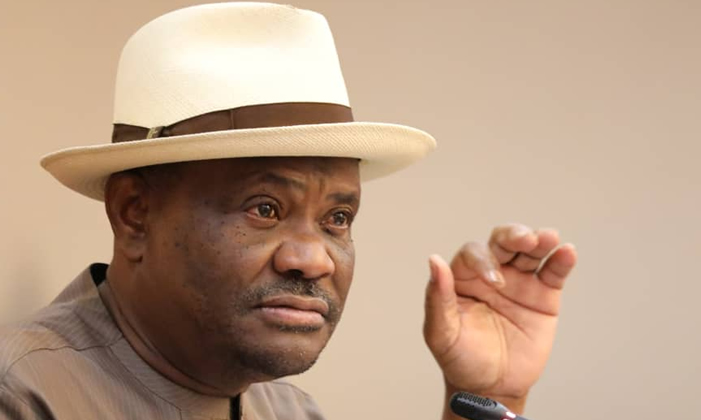Governor of Rivers state, Nyesom Wike has disclosed that financial autonomy for the judiciary is unrealistic under Nigeria’s current system of governance.
Recall that President Muhammadu Buhari in May, 2020 had signed an executive order granting financial autonomy to both the legislature and judiciary across all states in the country.
However, governors have raised concern over the constitutionality of the order, and due to non-implementation, members of the Judiciary Staff Union of Nigeria (JUSUN) embarked on strike in April.
Representatives of the presidential implementation committee on financial autonomy in May met with JUSUN as part of efforts to resolve the matter, but weeks after, the union insists it won’t call off the strike until concrete action is taken by the governors.
Speaking on Thursday at the commissioning of the industrial court judges quarters in Rivers, Wike said there will be challenges with implementation, since the executive — not the judiciary — is responsible for presenting the budget to the legislature.
“The constitution recognises three tiers of government — the federal government, the state government and the local government. Under the federal government, we have the executive, the legislature and the judiciary, and the executive is the only arm that can present the budget to the legislature. The judiciary cannot,” he said.
“It is the head of the executive that has the responsibility to present the state expenditure. The executive, legislature and judiciary will put their budget together for the executive to present to the legislature. It is the executive that will still sign it before it becomes implementable, except the legislature overrides it by a two to the third of majority.
“Things that they are telling you on financial implementation of the autonomy of judiciary and legislature is a lie, and they know it is not correct. We are practising the federal system and I am not bound by any presidential implementation committee.”
